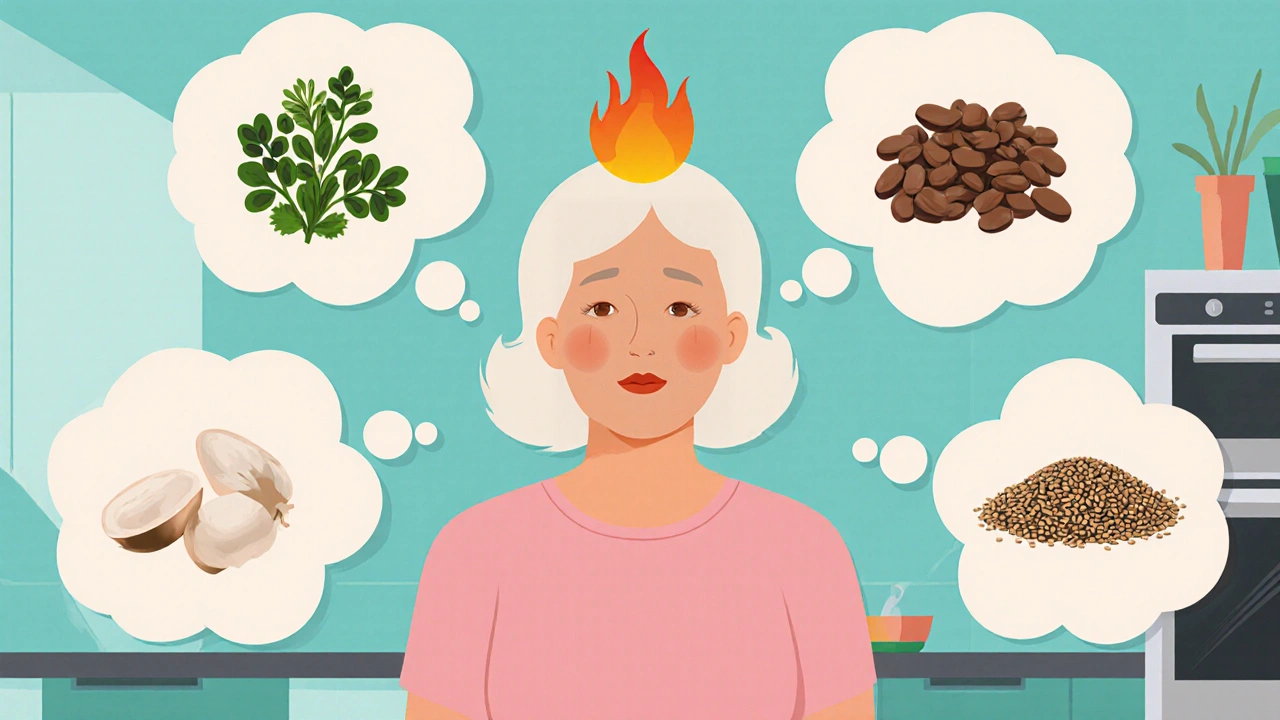Menopause Hot Flashes: Causes, Triggers, and Real Relief Options
When your body suddenly feels like it’s been set on fire—no fever, no workout—chances are you’re dealing with a menopause hot flash, a sudden feeling of intense heat, often accompanied by sweating and flushing, triggered by hormonal shifts during menopause. Also known as hot flushes, these episodes are one of the most common and disruptive symptoms of menopause, affecting up to 80% of people going through it. They don’t just show up out of nowhere; they’re tied directly to the drop in estrogen, a key female hormone that regulates body temperature, sleep, and mood. As estrogen levels fall, your brain’s thermostat gets confused. It thinks you’re overheating, so it triggers sweat glands and blood vessel dilation to cool you down—even when you’re perfectly fine.
What makes hot flashes worse? Some triggers are obvious: spicy food, caffeine, alcohol, and tight clothes. Others are sneaky—stress, warm rooms, even certain medications. If you’re on hormone replacement therapy, a treatment that replaces declining hormones to ease menopause symptoms, you might notice fewer flashes. But if you’re avoiding HRT due to concerns about risks, you’re not alone. Many turn to lifestyle tweaks, herbal options, or even simple breathing techniques. The good news? You don’t have to just endure them. Small changes in diet, exercise, and sleep habits can cut the frequency and intensity of hot flashes significantly.
And it’s not just about the heat. Night sweats—the same phenomenon happening while you’re trying to sleep—can wreck your rest, leaving you tired, irritable, and struggling to focus during the day. That’s why managing hot flashes isn’t just about comfort; it’s about protecting your overall health. Poor sleep linked to night sweats raises your risk for weight gain, high blood pressure, and even depression. That’s why understanding what’s happening inside your body matters. You’re not losing control—you’re adjusting to a new normal. And there are real, science-backed ways to take back some control.
Below, you’ll find detailed guides on what actually works to reduce hot flashes—from dietary swaps and natural remedies to understanding how medications interact with your symptoms. Some posts cover how HRT interacts with epilepsy drugs or blood thinners. Others break down what supplements like soy or black cohosh really do. There’s even advice on how to avoid medication waste while keeping your treatment plan simple and safe. These aren’t random tips. They’re pulled from real experiences and clinical insights, focused on what helps people day after day.
Discover ten evidence‑backed natural remedies for menopause symptoms, from black cohosh and soy isoflavones to yoga and acupuncture, plus dosage tips, safety notes, and lifestyle hacks.
Oct, 22 2025

